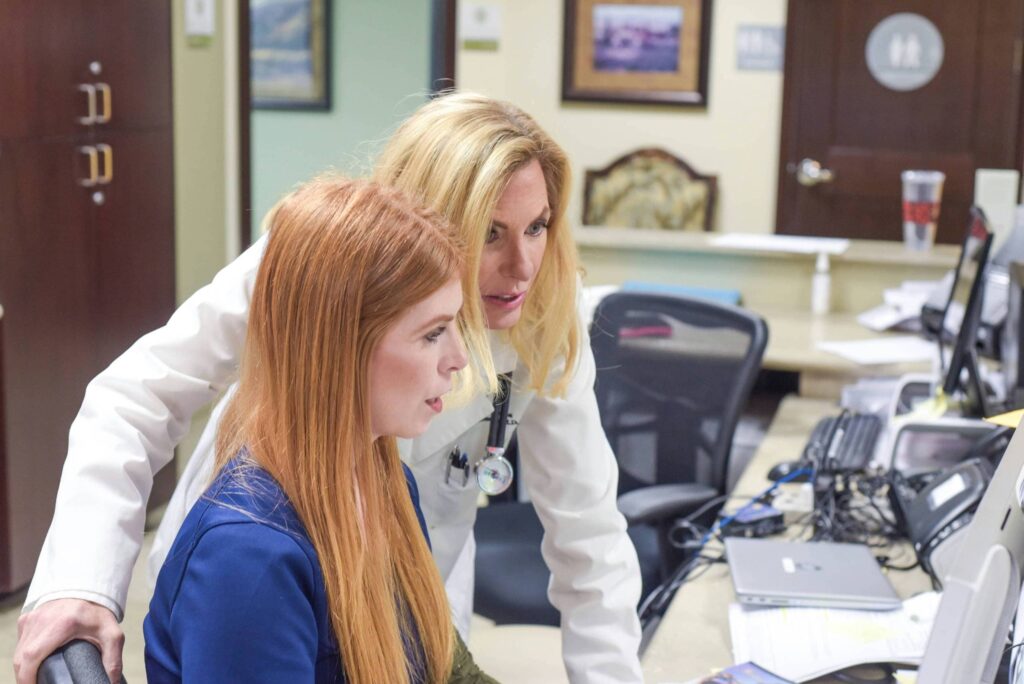Integrative Approach to Menopause Treatment
Menopause is a natural phase in a woman’s life that marks the end of her reproductive years. It is characterized by a decrease in estrogen and progesterone levels, leading to various symptoms such as hot flashes, night sweats, mood swings, and sleep disturbances. Integrative medicine offers a holistic approach to menopause treatment, focusing on addressing the root cause of these symptoms rather than just masking them with medications. By combining conventional medicine with complementary therapies such as acupuncture, nutrition, and stress management techniques, women can experience relief from menopausal symptoms and achieve a better quality of life.
At the Center for New Medicine, we understand the challenges that menopause can bring and are dedicated to providing personalized and comprehensive care to help women navigate this transition with ease. Our team of experts, led by Dr. Leigh Erin Connealy MD, utilizes the latest research and scientific evidence to develop individualized treatment plans that address each woman’s unique needs. By taking a holistic approach to menopause treatment, we strive to empower women to take control of their health and well-being, leading to a smoother and more comfortable menopausal experience.
Symptoms of Menopause
Menopause is a natural biological process that all women experience as they age. It marks the end of a woman’s menstrual cycles and reproductive years. During menopause, the body goes through significant hormonal changes, leading to symptoms such as hot flashes, night sweats, mood swings, and vaginal dryness. These symptoms can vary in severity and duration, impacting a woman’s quality of life.
Integrative Medicine offers a holistic approach to managing menopausal symptoms, focusing on natural remedies, lifestyle changes, and hormone therapy when necessary. Through personalized treatment plans, women can find relief from their symptoms and improve their overall well-being during this transition. It is essential to consult with a healthcare provider specialized in Integrative Medicine to explore all options available and make informed decisions about managing menopause effectively.
Diagnosis of Menopause
Menopause is a natural biological process that marks the end of a woman’s menstrual cycles. It is diagnosed based on factors such as age, symptoms, and the absence of periods for 12 consecutive months. Hormone level testing can also confirm menopause, with decreased levels of estrogen and progesterone being common indicators. Additionally, other tests may be conducted to rule out any underlying conditions that may be causing symptoms similar to those of menopause.
Diagnosing menopause is crucial in providing appropriate treatment and support to women experiencing this transition. With a focus on data-driven science and a holistic approach to healthcare, the Center for New Medicine led by Dr. Leigh Erin Connealy MD offers comprehensive diagnostic services to help women navigate through menopause with confidence and ease. By utilizing integrative and alternative medicine practices, the center aims to empower women to embrace this new phase of life with hope and optimism for a healthy and fulfilling future.
Menopause Holistic Treatment Options
Menopause is a natural stage in a woman’s life that marks the end of her reproductive years. It is a time of physical and emotional changes that can be challenging for many women. At Center for New Medicine, we understand the importance of holistic treatment options for menopause to help women navigate this transition with grace and ease. Our team of experts, led by Dr. Leigh Erin Connealy MD, specializes in integrative medicine approaches that focus on treating the whole person, not just the symptoms.
Through a combination of traditional and alternative therapies, we offer a comprehensive approach to menopause that addresses the underlying causes of symptoms and supports overall well-being. From personalized nutrition plans to stress-reducing techniques and natural supplements, our holistic treatment options aim to restore balance and vitality during this transformative time. We believe in empowering women to take control of their health and embrace menopause as a natural and positive phase of life.
Comprehensive Menopause Treatment Program
Our Comprehensive Menopause Treatment Program at the Center for New Medicine, led by Dr. Leigh Erin Connealy MD, offers a holistic approach to managing menopausal symptoms. Through a combination of evidence-based treatments and personalized care, our program focuses on addressing the root causes of menopause-related issues to provide relief and support for women during this transitional phase. We understand the importance of individualized care and strive to empower women with knowledge and tools to navigate menopause with confidence and vitality.
With a strong foundation in Integrative Medicine, our team at the Center for New Medicine is dedicated to providing comprehensive support for women experiencing menopause. Our approach combines traditional medical practices with alternative therapies to create a well-rounded treatment plan that addresses the physical, emotional, and hormonal changes that come with menopause. By focusing on the whole person and utilizing a range of treatment options, we aim to help women embrace this new chapter of life with grace and resilience.
Schedule A Consultation for Menopause
Menopause is a natural phase in a woman’s life that marks the end of her menstrual cycle. It typically occurs in her late 40s or early 50s, and is characterized by a decrease in estrogen levels. Symptoms of menopause can vary from woman to woman, but commonly include hot flashes, night sweats, mood swings, and sleep disturbances. At the Center for New Medicine, we understand the challenges that menopause can bring, and we are here to help you navigate this transition with personalized and holistic care. Our team of experts, led by Dr. Leigh Erin Connealy MD, specializes in integrative medicine approaches to menopause that focus on addressing the root cause of your symptoms and restoring balance to your body.
If you are experiencing symptoms of menopause and seeking relief, we invite you to schedule a consultation with our team at the Center for New Medicine. Our evidence-based and personalized treatment options can help you manage your symptoms and improve your quality of life. Contact us today at (949) 680-1880, email us at info@cfnmedicine.com, or submit your information online to receive a call back from one of our patient coordinators. Take the first step towards finding relief and empowerment during this phase of your life.


